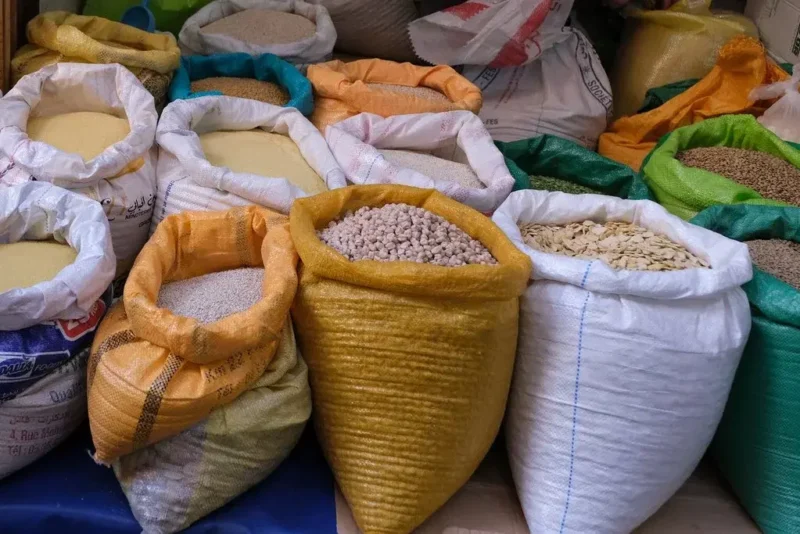In a recent report by the African Development Bank (AfDB), Nigeria’s expenditure on food imports in 2023 reached a staggering $10 billion, with approximately $3 billion allocated specifically for importing grains.
In 2023, Nigeria spent an astonishing $10 billion on food imports, with grains such as wheat, corn, and maize accounting for a significant $3 billion of the total cost. Despite having vast arable land, abundant water resources, and favorable rainfall patterns, the country remains heavily reliant on imported food.
Prof. Banji Oyelaran-Oyeyinka, the Senior Special Adviser to the President on Industrialization at the African Development Bank Group (AfDB), highlighted these figures while speaking at the opening of the 2024 Agriculture Summit Africa (ASA), themed “From Scarcity to Security.” The summit, organized by Sterling Bank in Abuja, brought together key stakeholders in agriculture to discuss Nigeria’s food crisis and the way forward for the sector.
“We have everything it takes to be self-sufficient in food production. Yet, we spend billions importing food that we can produce locally,” Oyelaran-Oyeyinka remarked. Despite Nigeria’s rich natural resources, he pointed out that only 40% of the country’s 84 million hectares of arable land is being cultivated. This stark underutilization of land, coupled with a lack of robust production systems, has contributed to the current state of food scarcity.
Oyelaran-Oyeyinka further stressed that political stability and security are crucial to ensuring agricultural growth. “Without stability, we’ll keep losing production,” he warned. Political instability and widespread insecurity have disrupted the country’s food supply chain, making it increasingly difficult for farmers to cultivate crops and access markets. These challenges, he said, need to be addressed urgently to unlock Nigeria’s agricultural potential.
The AfDB senior official emphasized that Africa, and Nigeria in particular, must embark on its own Green Revolution to tackle the food crisis. “Africa must get its own Green Revolution in the next five years, or else we remain a laughing stock,” Oyelaran-Oyeyinka declared.
He pointed out that while other countries have managed to overcome scarcity through industrialization and mass production, Nigeria has failed to capitalize on its agricultural resources due to political mismanagement and lack of investment in the necessary infrastructure.
Oyelaran-Oyeyinka also highlighted the declining contribution of Nigeria’s industrial sector to its GDP, which has fallen from 15.6% in the 1970s to just 5.7% today. The lack of infrastructure, machinery, and manufacturing capacity means that even though Nigeria has vast natural resources, it struggles to produce and process enough food to meet its population’s needs.
The country’s reliance on imports for essential food items, such as grains and fish, has put a significant strain on foreign reserves, further exacerbating the economic challenges. Oyelaran-Oyeyinka’s call for an urgent shift in policy and investment towards agriculture was echoed by Abubakar Suleiman, the Managing Director and Chief Executive of Sterling Bank.
Suleiman, whose bank has been at the forefront of financing agricultural initiatives, particularly for women in farming, said that access to finance for farmers remains a key challenge. He noted that despite the ongoing security challenges in the country, financial institutions must continue to support farmers to boost food production. “In spite of current security challenges, farmers should not be denied access to finance,” he said.
Sterling Bank, in collaboration with the Mastercard Foundation, has committed over $33 million in funding to support women in agriculture at single-digit interest rates. The bank has also increased its loan book to agriculture to 15%, a move that Suleiman said has been unprecedented in the continent’s financial sector.
“Access to finance remains a key problem that needs to be solved to boost food production in the country. With security challenges directly linked to food supply disruptions, it is imperative that we ensure farmers continue to have access to financial support,” Suleiman explained.
The bank’s ongoing programs, including the “Sway Action” initiative, are designed to target women and youth in agriculture, ensuring that the future of farming remains sustainable even as older generations of farmers approach retirement.
Suleiman also pointed to the impact of climate change on agricultural productivity, stating that much of Nigeria’s fertile land has become unproductive due to water supply issues and environmental degradation. This, coupled with insecurity, has worsened the situation, making it harder for farmers to produce and sustain their livelihoods.
One of the key solutions discussed at the summit was the need for collaboration between government, financial institutions, and the private sector to solve the food security crisis. Suleiman highlighted that for seven years, the Agri-Summit Africa has been providing a platform for these diverse stakeholders to engage and work together on practical solutions to food insecurity. He noted that many of the challenges faced by the agricultural sector were rooted in a lack of cooperation and a fragmented approach to solving issues such as post-harvest losses and low agricultural yields.
“We need to bring together the various sectors to collaborate and find solutions that can be implemented quickly and effectively,” Suleiman said. He also stressed that a significant shift in government policy towards agriculture was essential for achieving food self-sufficiency and economic prosperity. “Without fixing food supply, we can never fix security. Food insecurity is the ultimate insecurity,” he added.










Join our Channel...